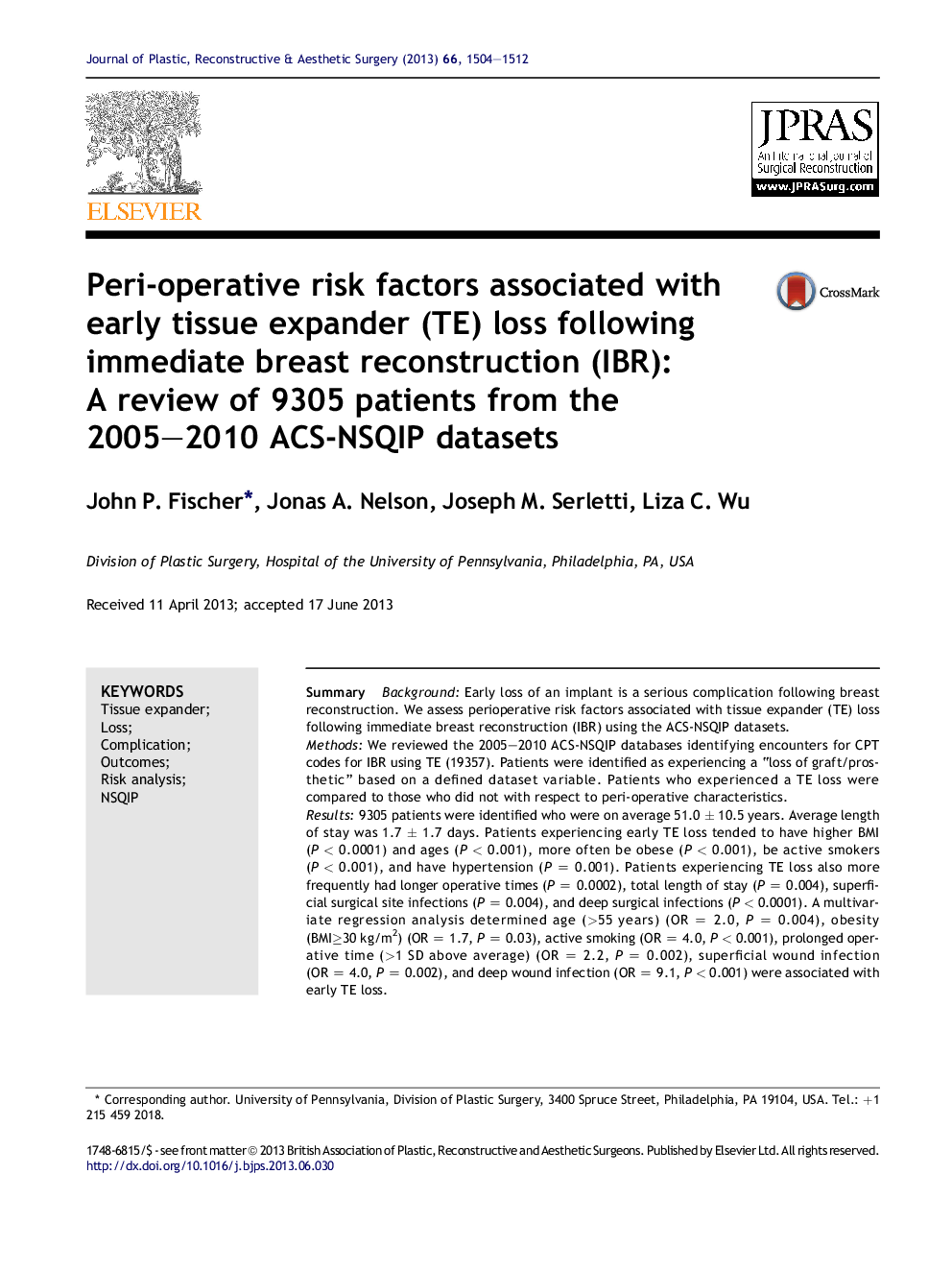| Article ID | Journal | Published Year | Pages | File Type |
|---|---|---|---|---|
| 4117390 | Journal of Plastic, Reconstructive & Aesthetic Surgery | 2013 | 9 Pages |
SummaryBackgroundEarly loss of an implant is a serious complication following breast reconstruction. We assess perioperative risk factors associated with tissue expander (TE) loss following immediate breast reconstruction (IBR) using the ACS-NSQIP datasets.MethodsWe reviewed the 2005–2010 ACS-NSQIP databases identifying encounters for CPT codes for IBR using TE (19357). Patients were identified as experiencing a “loss of graft/prosthetic” based on a defined dataset variable. Patients who experienced a TE loss were compared to those who did not with respect to peri-operative characteristics.Results9305 patients were identified who were on average 51.0 ± 10.5 years. Average length of stay was 1.7 ± 1.7 days. Patients experiencing early TE loss tended to have higher BMI (P < 0.0001) and ages (P < 0.001), more often be obese (P < 0.001), be active smokers (P < 0.001), and have hypertension (P = 0.001). Patients experiencing TE loss also more frequently had longer operative times (P = 0.0002), total length of stay (P = 0.004), superficial surgical site infections (P = 0.004), and deep surgical infections (P < 0.0001). A multivariate regression analysis determined age (>55 years) (OR = 2.0, P = 0.004), obesity (BMI≥30 kg/m2) (OR = 1.7, P = 0.03), active smoking (OR = 4.0, P < 0.001), prolonged operative time (>1 SD above average) (OR = 2.2, P = 0.002), superficial wound infection (OR = 4.0, P = 0.002), and deep wound infection (OR = 9.1, P < 0.001) were associated with early TE loss.DiscussionEarly TE loss is a complex multifactorial process likely related to identifiable preoperative, modifiable risk factors and postoperative complications. This analysis highlights previous work demonstrating of the added risk of age, obesity, and active smoking.
